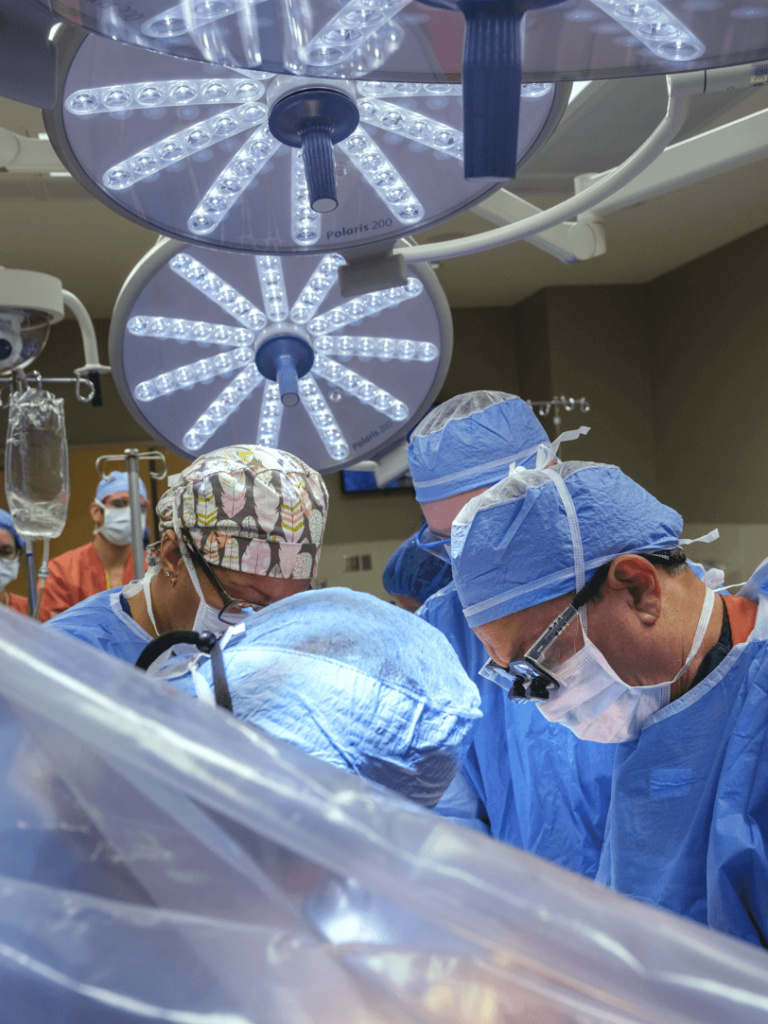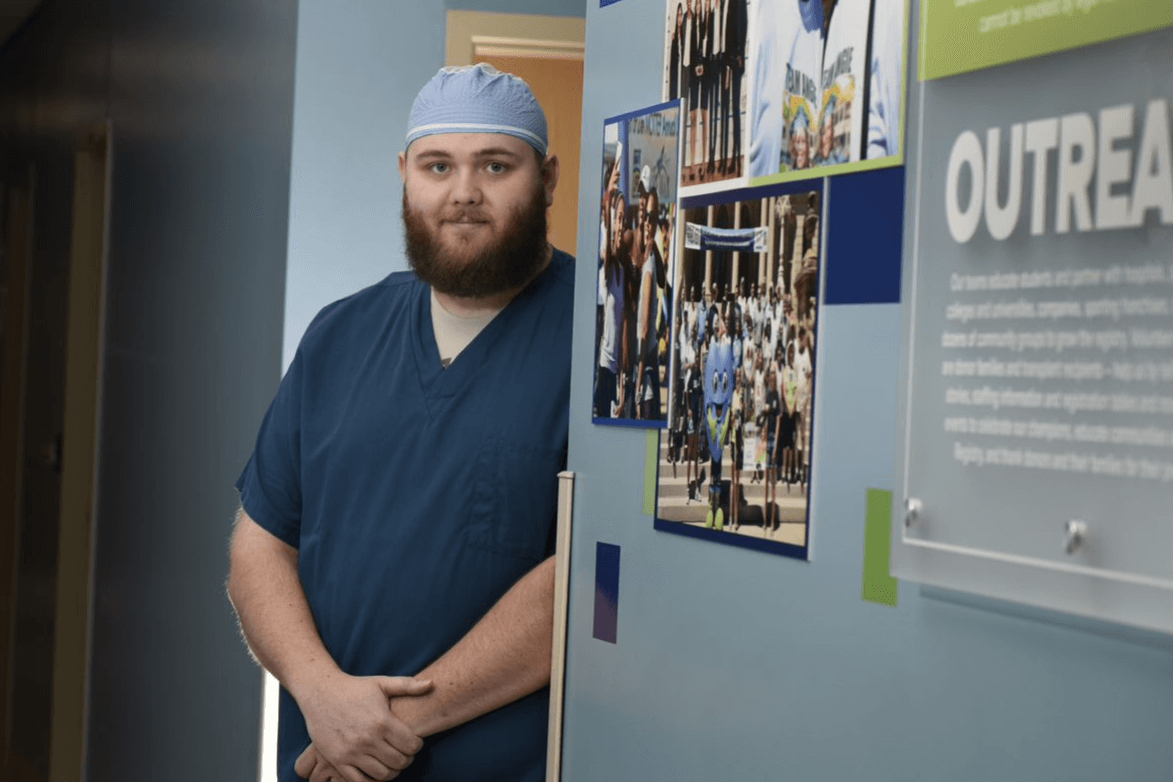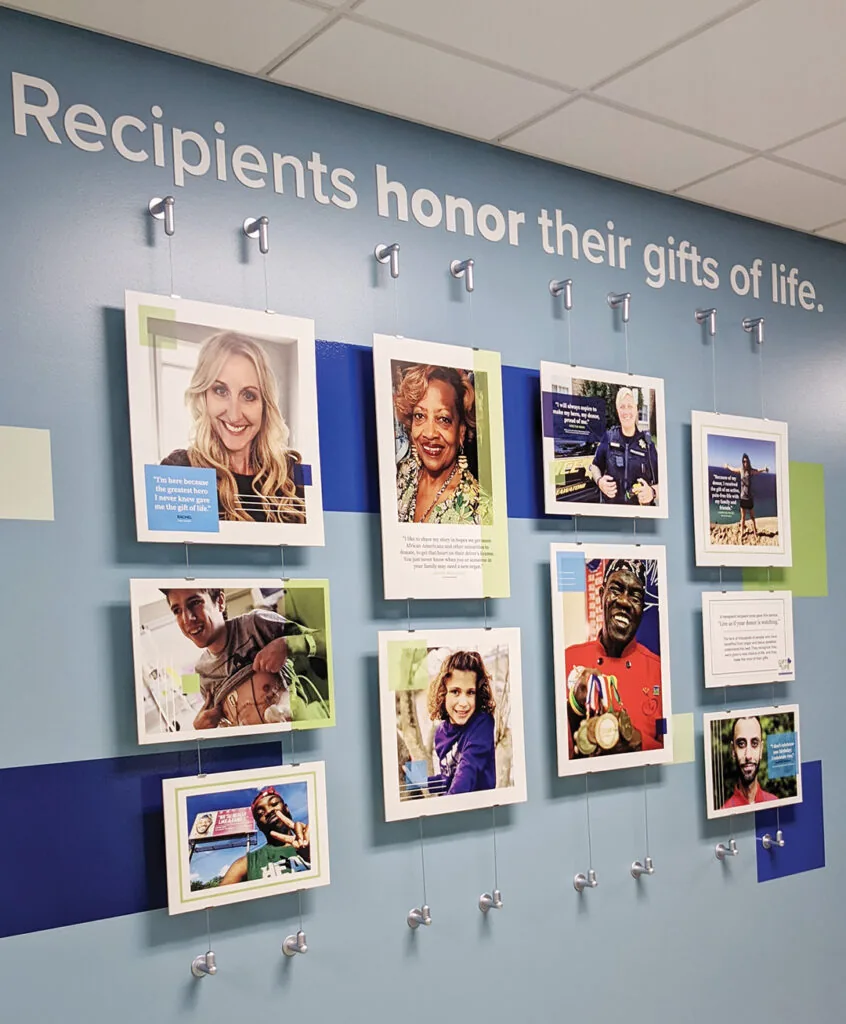Nick Olden has one job and it’s pivotal: He finds ways for non-transplantable donated tissue and organs to help humanity through research.
Gift of Life Michigan’s research coordinator and the clinical teams working alongside him are partnering with scientists to find cures and treatments for devastating diagnoses.
“Healthy donated organs that just miss being transplanted by a hair are being used in really important research going on right here in our state and beyond,” Nick said. “I’m proud to handle that research for Gift of Life.”
 Among the studies he and clinical teams contribute to: Deadly pancreatic cancer and other diseases of the pancreas, and debilitating brain disorders including Alzheimer’s disease, post-traumatic stress disorder and autism spectrum disorder.
Among the studies he and clinical teams contribute to: Deadly pancreatic cancer and other diseases of the pancreas, and debilitating brain disorders including Alzheimer’s disease, post-traumatic stress disorder and autism spectrum disorder.
“Every time we place an organ for research, there is a chance that we make a breakthrough or accomplish something never done before,” Nick said. “To be a part of that, and to help make that happen, is incredibly important.”
Donation for research requires special and separate permission from families and many say yes without hesitation, said Nick, who has been leading the research aspect of organ and tissue donation in Michigan since 2020.
Nick said the pancreas and brain disorders projects are two of five research initiatives Gift of Life is involved with. Knowing the possibilities for a breakthrough motivates him in the job he feels he’s perfectly suited for.
Bruce Nicely, Gift of Life’s vice president of clinical operations, calls Nick a dynamo.
“He interfaces with brilliant people undertaking projects that will better the world,” Bruce said. “He needs to know how research projects fit our mission and capacity. He also has to understand the basic science of the work and how it all fits with donation, Gift of Life policies, and the broader scope of research mandates.
Some of the research is organ-donation related, including one project aimed at finding ways for organs — especially hearts — to remain viable outside the human body for longer periods of time before transplantation.
Nick said diseases of the pancreas are expected to be the leading cause of death by 2030. So, there is urgency and Gift of Life is a steward of the necessary research.
Nick placed 36 pancreases from donors with Michigan Medicine researchers last year. That’s twice as many as in 2021. He also is involving Gift of Life in important work at Henry Ford Hospital, where researchers are looking into diseases of the bile duct and pancreas.
Gift of Life’s No. 1 tissue research project is with the Lieber Institute for Brain Development. Since 2019, the Baltimore institute has collected brain samples to study neurological disorders. The institute does incredible work to support veteran and minority populations.

Nick helped Gift of Life send 170 brains to the institute in 2022. Through the partnership, Lieber has published nearly two dozen scientific articles made possible by Michigan tissue donors and their generous families.
“I’m a pursuer of the why and how something works the way it does. Organ research is all about the why and how,” Nick said. “I wake up proud every day about the work we’re doing at Gift of Life.”
Nick makes sure research contributions meet industry regulatory standards for both organ recovery surgery and documentation. He also leads the organization’s Research Review Workgroup, which looks at every project for efficacy.
Brytany Bailey, director of preservation and placement at Gift of Life, said Nick is paramount to the research program’s success.
“He’s passionate about it and that’s contagious,” she said. “Nick is also innovative and looks for new opportunities, vets every project, walks our research partners through the application process then trains our teams.
“I’m so proud of the work we’re doing and of Nick’s leadership,” she said.
Nick says he’s a one-person team surrounded by many.
“Research projects result in long days and increase the workload of an already difficult job. Our staff has my deepest respect.”
How donors are helping
Gift of Life and Michigan donors are providing organs, brain tissue and other tissues to provide specimens for critical research, including:
• Looking at new ways for organs, especially hearts, to remain viable for longer periods of time outside the human body before transplant.
• Finding cures and treatments for deadly pancreatic cancer, pancreatitis and other diseases of the pancreas to counter growing mortality rates.
• The study of human brains to advance the treatment of psychological disorders including PTSD, Alzheimer’s disease,
autism spectrum disorder and more.









